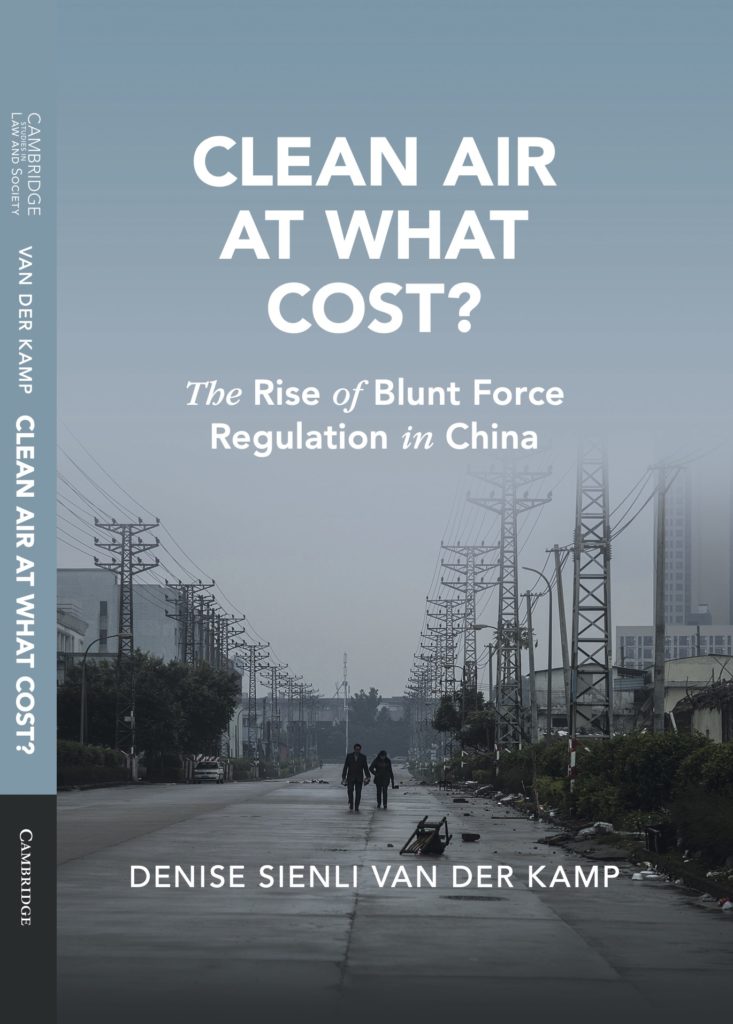Book
Clean Air at What Cost? The Rise of Blunt Force Regulation in China
(Cambridge University Press, Cambridge Studies in Law and Society)

China’s green transition is often perceived as a lesson in authoritarian efficiency. In just a few years, the state managed to improve air quality, contain dissent, and restructure local industry. Much of this was achieved through a top-down, “blunt force” solutions, such as forcibly shuttering or destroying polluting factories. This book argues that China’s blunt force regulation is actually a sign of weak state capacity and ineffective bureaucratic control. Integrating case studies with quantitative evidence, it shows how widespread industry shutdowns are used, not to scare polluters into respecting pollution standards, but to scare bureaucrats into respecting central orders. These measures have improved air quality in almost all Chinese cities, but at immense social and economic cost. This book delves into the negotiations, trade-offs, and day-to-day battles of local pollution enforcement to explain why governments employ such costly measures, and what this reveals about a state’s powers to govern society.
Articles
Governance by Uncertainty: Changing Patterns in China’s Environmental Enforcement. Studies in Comparative International Development (2023): 1-24
Blunt Force Regulation and Bureaucratic Control: Understanding China’s War on Pollution. Governance, 34, no. 1 (2021): 191-209
Can Police Patrols Prevent Pollution? The Limits of Authoritarian Environmental Governance in China. Comparative Politics, 53 no.3 (2021): 403-433
Racing to the Bottom or to the Top? Decentralization and Governance Reform in China. World Development 95 (2017): 164-176 (with Peter Lorentzen and Daniel Mattingly)
Manuscripts in Progress
High Maintenance of Low Maintenance? Environmental Policy Implementation in China (with Iza Ding)
Other Publications
2018. “Will China’s Waste Ban Force a Global Cleanup?”, East Asia Forum, December 7 2018
